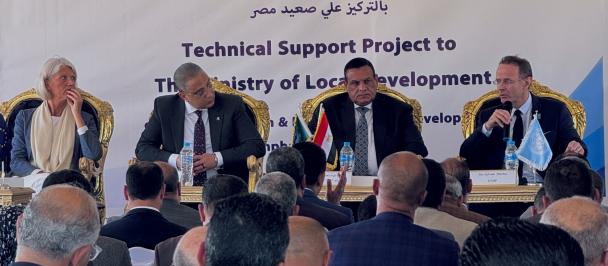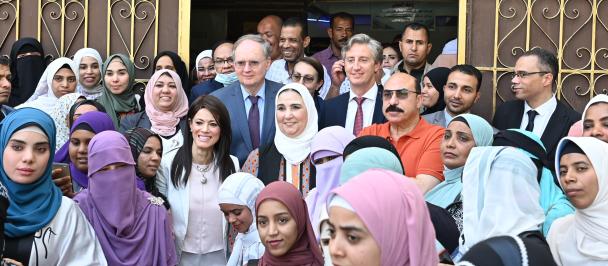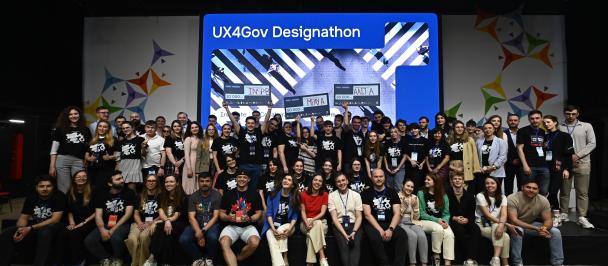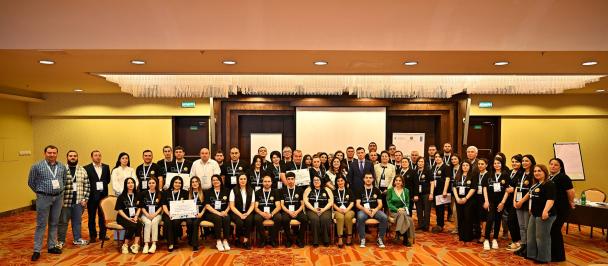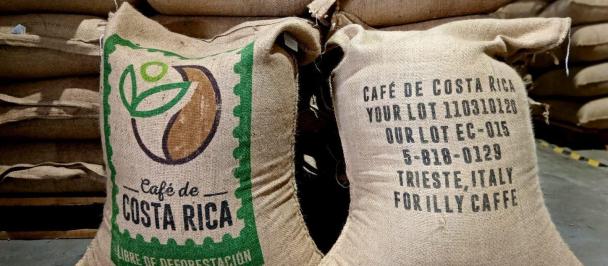Acknowledge and promote the role of the informal waste workers towards a Just Transition in implementing Extended Producer Responsibility (EPR) and a global plastic treaty
March 15, 2024
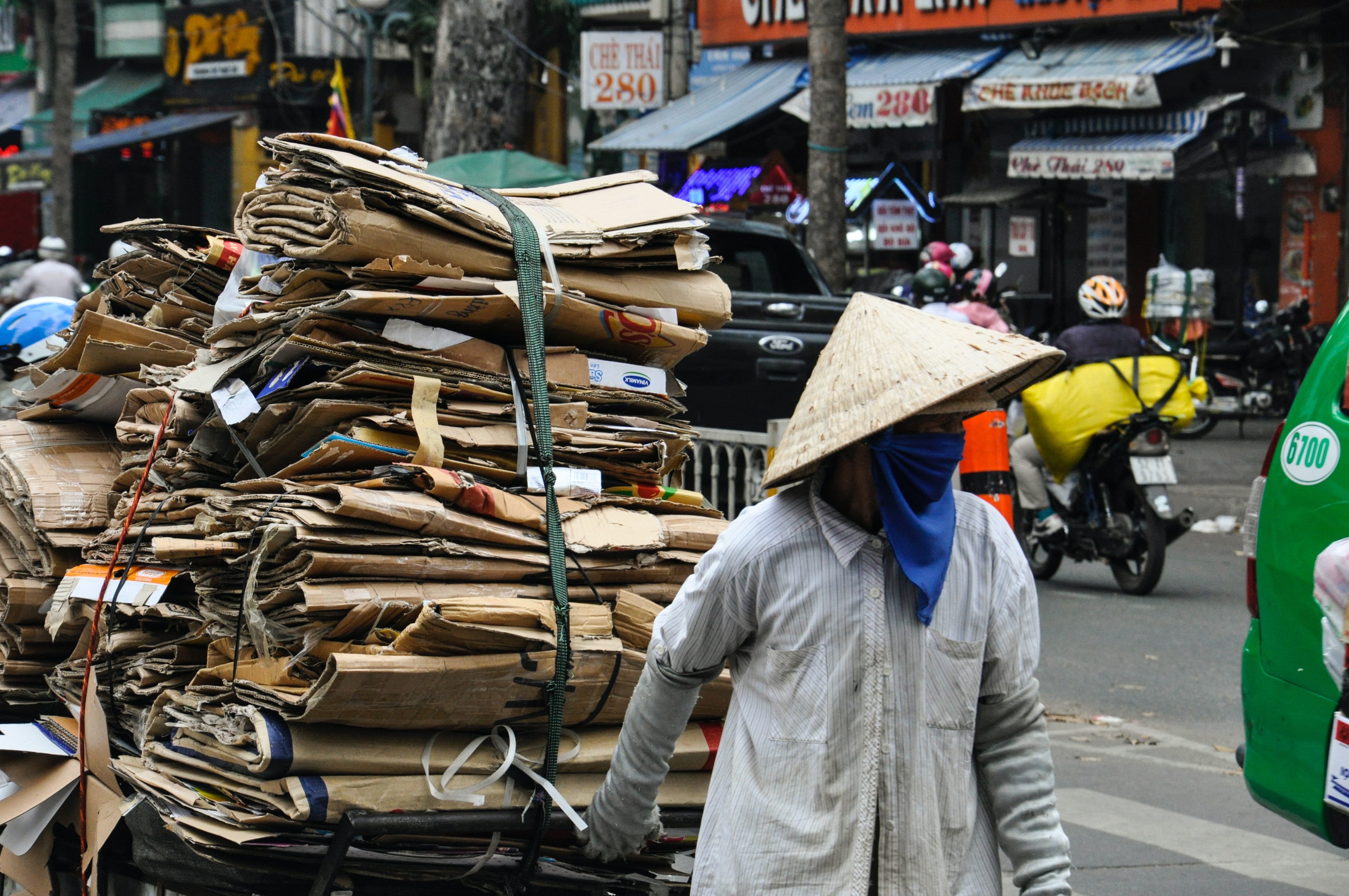
Quang Nam, 8 March 2024 – On the occasion of the International Women’s Day in 2024, UNDP Viet Nam, the Gender and Social Inclusion Task Force of the National Plastic Action Partnership (NPAP), and IUCN Viet Nam (through the IUCN-PRO Viet Nam strategic partnership), curated a meeting in Hoi An to recognize and promote the contribution of informal waste workers (IWWs) in reducing plastic waste; discuss inputs to Viet Nam’s preparations for the ongoing Global Plastic Treaty’s negotiation; and integrate IWWs into Extended Producer Responsibility (EPR) implementation.
The workshop was participated by the local government authorities, research institutes, NGOs, members of the NPAP’s Gender and Social Inclusivity Task Force, representatives of MONRE, DONRE, UNDP, IUCN, the Canadian Embassy in Viet Nam, Viet Nam EPR Office, local and international NGOs, academia, PRO Viet Nam, business, media and recyclers.
Articles No. 54 & 55 of the 2020 Environmental Protection Law (LEP) and its subsidiary decrees have detailed the implementation of EPR in Viet Nam. The EPR scheme is expected to bring about significant changes in the waste management system, particularly impacting IWWs in the collection and recycling of waste. The EPR will fundamentally affect the waste collection, sorting and recycling system in Viet Nam, which is partially undertaken by the informal sector.
According to The Circulate Initiative (2023), about 60% of plastic waste is collected and recycled by 20 million informal waste workers globally, who are among the most vulnerable and marginalized groups in society. In Viet Nam, the informal sector, where women account for up to 90% of the composition, also helps collect over 30% of recyclable plastic, thereby alleviating the financial burden on local cleanliness and with the potential to support a reduction in the waste collection and treatment costs paid by the government. To shape a sustainable plastic circularity and implement national plans, it is necessary to ensure that IWW have opportunities to improve their livelihoods and support them to transit into the formal waste management system.
Ms. Ramla Khalidi, Resident Representative of UNDP Viet Nam, stressed that “The informal sector, which includes waste workers, scrap dealers, junk shops and others, must be part of any solution. As part of the value chain, the informal sector can help producers achieve recycling targets under the EPR system. Their voices should be heard and recognized. EPR is not only about producers’ responsibility towards recycling rates, but also about responsibility for people throughout the waste value chain, and especially informal waste workers, whose livelihoods depend on waste collection.”
Ms. Khadija Jarik, First Secretary at the Embassy of Canada, shared that, "Plastic pollution is a global problem that requires urgent attention. We are fully engaged to end plastic waste and pollution as we move towards a circular plastics economy. EPR programs are an effective policy tool as part of a broader waste management system, which needs to take into consideration local and regional circumstances and the important role of informal waste workers.”
IUCN Country Representative Jake Brunner emphasizes that “Waste pickers, almost entirely women, do a vital job collecting, transferring, and pre-treating waste. They therefore play a key role in the circular economy. The challenge is to improve their working conditions and connect them to the formal solid waste management system. This will require waste separation at source, much greater government investment in waste collection and processing, and enforcement of anti-littering rules.”
Before the meeting, the participants and the Task Force also visited the pilot models, “Green House” and “Happy Shop”, which were designed and developed by ‘unsung heroes” in Hoi An city. Understanding local contexts and boosting innovative ideas are approaches for all members of the Task Force to finalize its work plan for 2024 and take actions in different areas of Viet Nam.
--------------------------------------
About National Plastic Action Partnership (NPAP)
The Viet Nam National Plastic Action Partnership (NPAP) is a nationally led multi-stakeholder platform that enables collaboration between the government and other vital partners to turn plastic waste and pollution commitments into actions. From August 2022, Viet Nam NPAP Secretariat is officially hosted by UNDP Viet Nam, which operates and leads the support to NPAP’s activities.
The NPAP Gender and Inclusivity Task Force, launched on 15 December 2023, comprises 16 organizations from policymakers, waste collectors and recyclers, development partners, impact investors, innovators and gender experts with an aim of mitigating plastic waste and plastic pollution by promoting gender and inclusivity interventions that take into account the roles of the informal sector and different social groups in supporting plastic waste collection, segregation and recycling. The Task Force is chaired by The Canadian Embassy in Viet Nam, and co-chaired by the Institute of Strategy and Policy in Natural Resources and Environment.
Website: http://npap.undp.org.vn/
Facebook: https://www.facebook.com/VietnamNPAP
About IUCN
IUCN is a membership Union composed of both government and civil society organisations. It harnesses the experience, resources and reach of its more than 1,400 Member organisations and the input of more than 16,000 experts. IUCN is the global authority on the status of the natural world and the measures needed to safeguard it.
IUCN has a long history in Viet Nam since the middle of 1980s. In 1993, Viet Nam Government became an IUCN state member and the IUCN Viet Nam Country Office also opened in the same year. Since then, IUCN has made important contribution to biodiversity conservation and environmental protection, primarily through support to the development of laws and policies). Our partners include the National Assembly, Ho Chi Minh National Academy of Politics, ministries, and businesses, and local NGOs.
IUCN works on different thematic conservation areas including water and wetlands, coastal and marine, business and biodiversity, World Heritage Sites and Protected Areas, etc. Our programmes include the formation of multi-stakeholder groups to supervise project activities, support local NGOs though small grant financing, finance pilot projects to test improved practices, improve the quality of environmental news, engaging business to improve their environmental performance, and cooperate with provincial governments to demonstrate the benefits of Nature-based Solutions to environmental problems.
www.iucn.org
https://twitter.com/IUCN/
Media contact: | |
UNDP Viet Nam Viet Nam National Plastic Action Partnership (NPAP) | IUCN Ms. Nguyen Thuy Anh Senior Communications & Outreach Officer Email: thuyanh.NGUYEN@iucn.org Website: www.iucn.org Mob: 09317 68666 |

 Locations
Locations